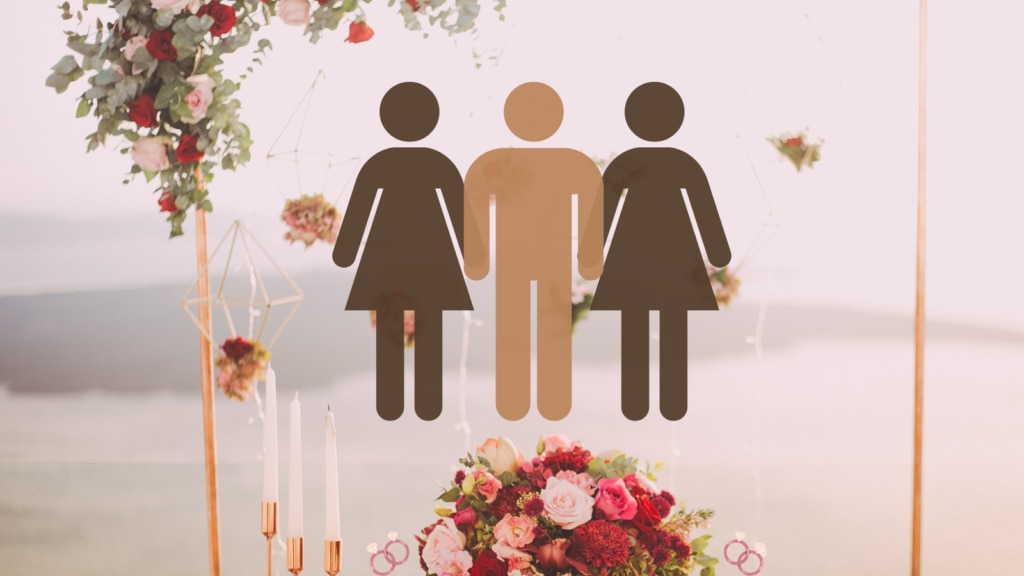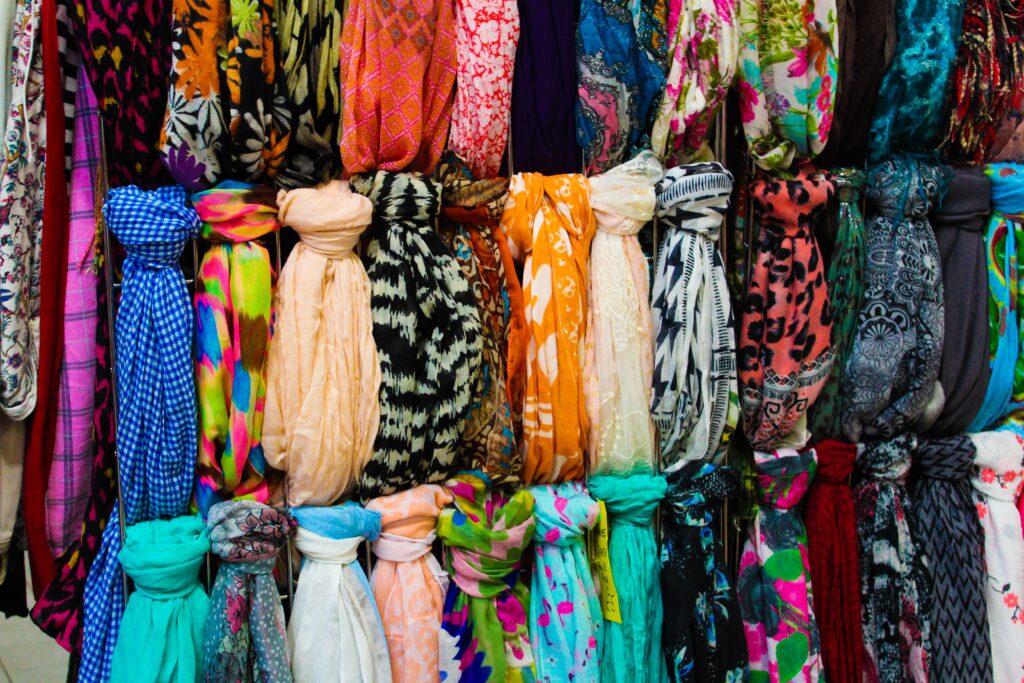Guidance regarding basic Islamic issues – which Hazrat Amirul Momineen, Khalifatul Masih Vaa has given on various occasions in his written correspondence and during MTA programmes – is being officially published below for everyone’s benefit
Waxing and plucking eyebrows

A lady wrote to Hazrat Amirul Momineen, Khalifatul Masih Vaa that a murabbi had argued that the plucking of eyebrows was impermissible and was equivalent to adultery. She sought guidance on this as well as the Islamic ruling on body waxing.
Huzooraa, in his letter dated 16 January 2021, offered the following guidance regarding this topic:
“It is narrated in the ahadith that Allah the Exalted has cursed those women who, for cosmetic or aesthetic purposes, practise tattooing, and those who get themselves tattooed, and those who pluck facial hair, and those who artificially create a space between the front teeth, and those who practise artificial lengthening of the hair, and those who get their hair lengthened artificially, who alter Allah’s creation. (Sahih Bukhari, Kitab al-Libas)
“There is always some or the other point of wisdom behind every Islamic commandment. Moreover, some Islamic injunctions have a specific context and background to them. If we disregard their background, then they would become distorted. When the Holy Prophetsa was commissioned as a prophet, on the one hand, the poison of various kinds of polytheism had spread everywhere in the world and especially in the Arabian Peninsula, and on the other hand, different kinds of misguided attitudes had also gripped humanity in their claws. Men and women were involved in various kinds of polytheistic rituals and social evils.
“The ahadith that prohibit the abovementioned actions, especially mention two motivators [behind those actions]; a) the altering of God’s creation or b) looking more beautiful.
“When we carefully consider these two aspects, we observe that the first aspect, namely ‘the altering of God’s creation’, points to social evils and also reflects polytheistic practices. Hence, wearing long braids, wrapping them into ‘turbans’ and then considering those to be a sign of nobility or sacrament; wearing braids or topknots as a vow of devotion to some saint or guru; shaving the top of the head while growing hair around it and considering it a blessing for children; having the image of a goddess, idol or animal tattooed on the body, face, arms etc. to seek blessings – these were all polytheistic practices, driven by mythical superstitions of the jahiliyyah [the pre-Islamic period of ignorance].
“The second aspect, that is ‘for the sake of beauty’, in some respects, reflects social misconduct and obscenity. It is not forbidden for a person to adopt any legitimate methods for their own beauty while remaining within the permissible limits. Hence, it is mentioned in a hadith that a person said [to the Holy Prophetsa] that he liked and admired a fine dress and shoes and he asked if it constituted arrogance. The Holy Prophetsa replied that that was not arrogance. Arrogance was to deny the truth and despise others. He went on to say:
إِنَّ اللّٰهَ جَمِيلٌ يُحِبُّ الْجَمَالَ
“‘Allah is most Beautiful and loves beauty.’ (Sahih Muslim, Kitab al-Iman, bab tahrimi l-kibri wa bayanih)
“Moreover, it is a well-established fact that even in those days when women were to be married, they too would be adorned according to the methods of that era.
“Therefore, the attainment of ‘beauty’ about which the Holy Prophetsa warned of God’s curse certainly means something else. Hence, when we carefully ponder over the ahadith in this regard, we see that the Holy Prophetsa, when prohibiting these things, added that the Children of Israel perished when their women started such acts. (Sahih Bukhari, Kitab al-Libas)
“Then, we also know that at the time of the Holy Prophetsa, lewdness was common among the Jews and at that time there were several brothels in Medina, especially in the Jewish area. The women who were involved in this business would employ such tactics of embellishment to beguile the men. Hence, Allah’s Messengersa forbade believing women from using those [means of enhancing beauty].
“Thus, the prohibition of these things appears to stem from the wisdom that if they result in such an artificial change in the physical appearance of an individual that the distinction between man and woman, which God Almighty has created in human beings, vanishes, or there is a fear that this kind of action may lead to inclination towards shirk, which is the gravest of sins; or if these things are carried out in order to beguile the opposite sex in an impermissible manner, then all these actions would be considered unlawful and actionable.
“It was within this context of these vices that the Holy Prophetsa forbade such things to the believing women. However, he also gave reasonable permission in exceptional circumstances on grounds of someone’s suffering or illness. Hence, it is narrated by Hazrat Abdullahra bin Mas‘ud that:
سَمِعْتُ رَسُولَ اللّٰهِ صَلَّى اللّٰهُ عَلَيْهِ وَسَلَّمَ نَهَى عَنْ النَّامِصَةِ وَالْوَاشِرَةِ وَالْوَاصِلَةِ وَالْوَاشِمَةِ إِلَّا مِنْ دَاءٍ
“‘I heard Allah’s Messengersa forbidding the plucking of hair, filing of the teeth, having artificial hair and having tattoos done except on grounds of illness.’
“Islam has made actions dependent on their intentions. Therefore, in this age, there is nothing wrong with a woman making use of these things in a lawful way and for a legitimate purpose as long as she is observing the Islamic injunctions regarding hijab. Nonetheless, if these actions lead to an inclination toward vices or they lead to an expression of any polytheistic rituals or disobedience to a clear command of Islam – for example, if women do not take full care of their purdah and expose their private parts in front of other women while having their waxing or other treatments etcetera done – then such actions would be counted among those against which we have been warned by the Holy Prophetsa and they would be unlawful.
“Furthermore, it should also be kept in mind in this regard that Allah the Exalted has declared discord and disorder to be greater sins than murder and has commanded their abolition. There have been some instances where marriages were dissolved or divorces were issued after marriages because the husband found out later that the woman had facial hair. If they are not cleaned or plucked out, these few hairs would ruin more houses, and a long series of unpleasantries would begin. In any case, it was not at all the objective of the Holy Prophetsa to give rise to a situation in society that would lead to the spread of disorder in the homes. The wisdom behind his uttering such harsh words appears to be that since polytheism is the gravest of sins and these practices were employed for the sake of various deities etcetera, or since they used to be tools for promoting indecency, he expressed his disgust about them in the strongest possible terms, and thus uprooted polytheistic customs and indecency.”
Second nikah in countries where polygamy is illegal

A lady wrote to Hazrat Amirul Momineen, Khalifatul Masih Vaa saying, “My husband, who had been expelled from the Jamaat, has performed a second nikah without first divorcing me. Since he does not have the legal right to have more than one wife, he is therefore committing adultery. I do not see the Islamic status of such a nikah. Hence, his [second] nikah should be annulled.”
In his letter dated 16 January 2021, Huzooraa provided the following reply to this request:
“It is true that it is legally forbidden for a married man to have another wife in most Western countries. However, Islam allows a man to have up to four wives at a time. If a man travels to a place where having more than one wife is not prohibited and marries another woman by way of a formal nikah, then in the Western countries, his second wife would not be afforded any rights under the law of the land. However, under the Islamic law, she would be considered his wife and their conjugal relationship would not be deemed adultery.
“Would you have been pleased if your husband had had an extramarital affair with that woman, which is prohibited by the Shariah but the laws of these Western countries allow room for it to be considered legal?
“Just as Islam has defined rights for men based on their requirements, it has likewise established different rights for women. While elucidating this aspect of Islamic teaching, the Promised Messiahas stated:
“‘It is well known that Islam permits a man to marry up to four wives at a time; and this is a permission, not a compulsion. Every man and woman is well aware of this doctrine. When marrying a Muslim man, women have the right to lay down the condition that the husband will, in no circumstance whatsoever, marry another woman. If this condition is laid down before marriage, the husband will certainly be guilty of breach of contract if he goes on to marry another. However, if a woman does not prescribe any such condition, and is content with the law as it is, an outsider has no right to interfere. In such a case, the [Urdu] proverb seems relevant: “If the husband and wife are happy, the judge has nothing to do.” Every sensible person can understand that God has not made polygamy obligatory, He has only declared it lawful. If a husband desires, for some genuine reason, and under Divine law, to avail this permission, and his wife is not happy about it, she has the option to demand a divorce and be rid of this anxiety. And if the other woman, whom he wishes to marry, is not happy, she too has the easy option to decline the offer of such a suitor. No one is under compulsion. But if both women agree to this second marriage, what right then does an Arya have to interfere?’” (Chashma-e-Ma‘rifat, Ruhani Khazain Vol. 23, p. 246)”
Purdah, free-mixing and Halloween

A schoolgirl wrote to Hazrat Amirul Momineen, Khalifatul Masih Vaa, “In Islam, women are only commanded to generally cover themselves. Then, why do we observe purdah by wearing headscarves etc.? Why can girls not be friends with boys at school? Moreover, can I dress up as a fairy on Halloween?”
Huzooraa, in his letter dated 26 January 2021, offered the following guidance regarding this topic:
“Islam has endowed both men and women with a greatly enlightened teaching regarding purdah. Hence, it states that both believing men and women should lower their gaze, that is keep their eyes away from seeing non-mahrams and conceal their private parts [satr]. Then, it has further admonished believing women that they should draw their head-coverings over their bosoms, should not disclose their beauty and should not strike their feet so that what they hide of their ornaments may become known.
“In this brief but very comprehensive teaching, every detail about purdah has been elucidated, namely that a believing woman should safeguard her eyes, ears and areas of satr and should also ensure that her dress is not so tight that it reveals her physique nor so loose and wide that the chest and other areas of satr get exposed.
“The commandment about not striking the feet on the ground implies that a believing woman should also refrain from physical movements in a manner which may reveal the various features of her physique, or, if a piece of jewellery such as an anklet etc. is worn on the feet, its sounds may draw people’s attention towards it and the eyes of strangers may be drawn to her or, if she has adorned her feet with henna or nail polish etc., the eyes of men may be drawn to her. All these things would be in violation of the injunctions of purdah.
“Thus, Islam does not consider it adequate for a woman to merely cover her head with a headscarf. On the contrary, by stating these matters, it has also explained all the other purdah-related requisites i.e. the ways in which a woman ought to take care of her purdah and cover herself.
“Explaining the verses on purdah, the Promised Messiahas says:
“‘That is, direct the believing men to restrain their eyes from looking at women outside the prohibited degrees so openly as to be sexually excited by them and to cultivate the habit of guarding their looks. And should safeguard their private parts at all costs. Likewise, they should restrain their ears outside the prohibited degrees that is they should not listen to the singing or beguiling voices of women outside the prohibited degrees nor should they listen to descriptions of their beauty. This is a good way of preserving the purity of their looks and hearts. In the same way, direct believing women that they should restrain their eyes from looking at men outside the prohibited degrees and should safeguard their ears against listening to the voices of such men. That is, they should not listen to the voices which sexually excite them. They should cover up their beauty and should not disclose it to anyone outside the prohibited degrees. They should draw their head-coverings across their bosoms and should thus cover up their heads and ears and temples. They should not strike their feet on the ground like dancers.’ (Islami Usul Ki Falasafi, Ruhani Khazain Vol. 10, pp. 241-242)
“Huzooras further says:
“‘The Quran instructs Muslim men and women to lower their gaze […] The Islamic veil does not at all mean that women be imprisoned as though they were locked in jail. The purport of the Holy Quran is that women cover themselves and refrain from gazing at men that are beyond the permissible bounds. Women are not barred from leaving the house to tend to their societal needs. They are welcome to go out and about but must control their gaze.’ (Malfuzat [2016 edition], Vol. 1, p. 405)
“As far as the [ruling regarding] friendship between girls and boys is concerned, the primary logic behind it is to safeguard the chastity of women [and men]. Free-mixing is likely to result in a variety of evils. Therefore, Islam distinguishes between mahram and non-mahram relationships in this regard and defines the limits of male-female relations. Allah and His Messengersa imparted very clear teaching to their believers and followers in this regard. Hence, the Holy Prophetsa said that a person should not meet a non-mahram woman in seclusion for Satan was always the third companion in such a rendezvous.’ (Sunan al-Tirmidhi, Kitab al-Fitan)
“The Promised Messiahas explained the wisdom behind this instruction of the Holy Prophetsa in the following words:
“‘It has often been heard and observed that such societies see no ill in a non-mahram man and woman remaining alone behind closed doors; they call this civilisation. It is to counter these very adverse effects that the Founder of Islam has forbidden an individual altogether from approaching anything that may lead them to stumble. In this relation, the Holy Prophetsa has stated that where a non-mahram man and woman sit in seclusion, the third with them is Satan. Just reflect on the harrowing outcomes that Europe is having to bear as a result of this non-restrictive and unbridled teaching. In certain places, an utterly shameless life of promiscuity is led. This is due to teachings of the sort just mentioned. If you wish to protect a thing from misuse, it must be safeguarded. However, if one does not watch over a possession – and considers the world to be innocent – then keep in mind that it will surely be ruined. The Islamic veil is a truly holy teaching indeed, which, through segregation, saves man and woman from stumbling. It has delivered mankind from an illicit, grievous and bitter life.’ (Report Jalsa Salana 1897, p. 48)

“The ritual of Halloween, which is now considered ‘fun’ by people, is based on satanic ideas and polytheistic beliefs and is a hidden evil. A true Muslim and especially an Ahmadi should always remember that one must safeguard against anything which is based on shirk even if it is done for enjoyment because such rituals take a person away from religion. Moreover, it is also against the dignity of an Ahmadi child to go begging, as beggars do, around people’s houses on the occasion of this festival in the name of entertainment. An Ahmadi has a certain distinction which we should inculcate in the minds of children from childhood.
“Thus, no Ahmadi is permitted to participate in the ritual of Halloween, neither by dressing up as a ghost, nor as a witch or a fairy, because this ritual is based on false and polytheistic beliefs.”
(Compiled by Zaheer Ahmad Khan, Head of Records Department, Private Secretariat, London. Translated by Al Hakam)


Such a detailed explanation by Hazrat Khalifatul Masih 5th, may Allah be his Helper, may Allah bless him immensely.
Very useful Q and A article I wish everyone can read it.
Maa Shaa Allah!!!
This is awesomely couched and explicit. May Allah be the Huzoor’s helper. Aameen.